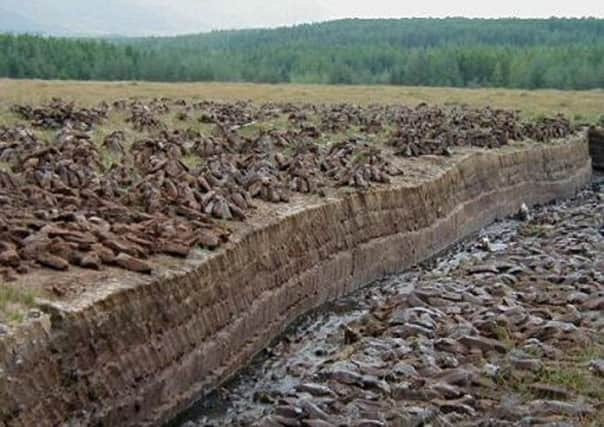Our peat bogs are the UK’s amazon rainforest and need protecting, academic warns


A new Government-backed Peatland Code is to be unveiled today following a successful two-year trial, which has seen businesses fund peatland restoration projects in southwest England, the Lake District and Wales.
The code is based on research by academics at Leeds and Birmingham City universities. This revealed that sustainable business investment could reverse the degradation of peatlands and significantly cut greenhouse gas emissions.
Advertisement
Hide AdAdvertisement
Hide AdThe code targets the restoration of one million hectares of peatlands over the next five years and these restored sites alone could save 220 million tonnes of carbon dioxide by 2050.
Professor Joseph Holden, who led research at Leeds University said: “The peatlands of the UK are our own version of the Amazon rainforest. They need to be protected. They are home to some of our rare and endangered wildlife.
“They also act as a huge store of carbon, with perhaps as much as 3.2 billion tonnes, greater than the amount of carbon soaked up every year by all of the world’s oceans combined. The UK’s peatlands are also important source areas for the provision of clean drinking water while protection of many of our peatlands may reduce flood risk.”
UK peatlands, which are wetlands made up of decomposed plants, currently lock away more than three billion tonnes of carbon.
Advertisement
Hide AdAdvertisement
Hide AdThey provide the habitat of rare wildlife and act as a natural filter to drinking water – but more than 80 per cent have been damaged.
The Peatland Code sets out key environmental guidelines and has been drawn up by the International Union for Conservation of Nature’s (IUCN) UK Peatland Programme.
It is to be announced today at the World Forum for Natural Capital in Edinburgh. It code offers detailed carbon reduction statistics for organisations investing in pre-approved projects so they know the real-world environmental benefits of their funding.
The research has won awards for its impact, including a commendation earlier this year from the Higher Education Funding Council for England as part of its Research Excellence Framework, for demonstrating “very considerable impacts in terms of [its] reach and significance”. Peatlands cover around 10 per cent of the UK and store more than 20 times the amount of carbon as all the country’s forests.